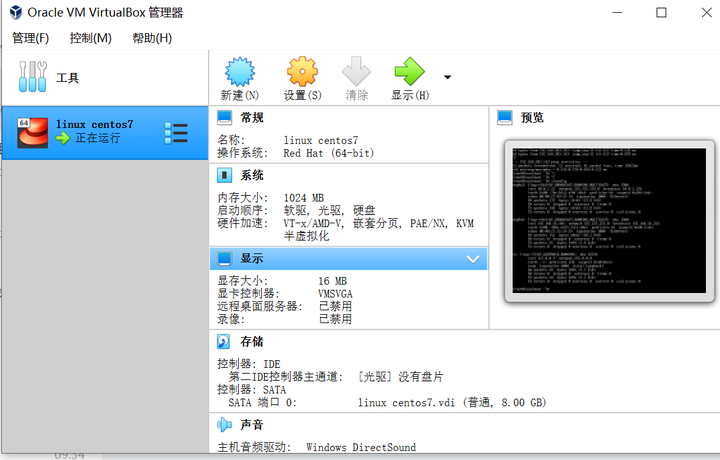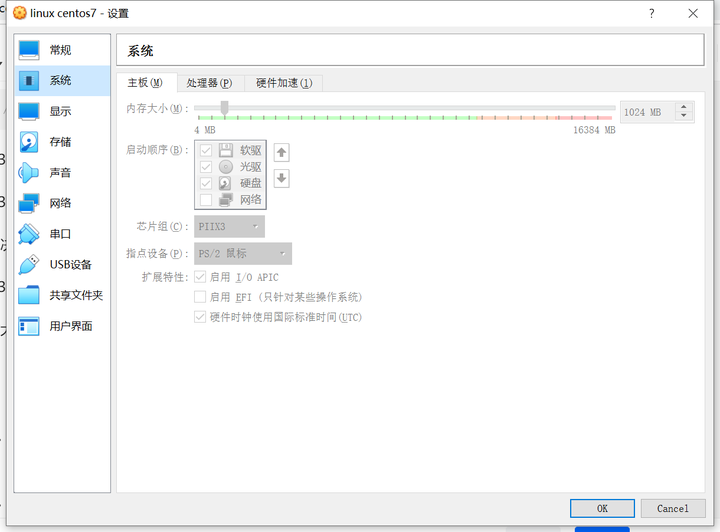Elasticsearch 安装与数据导出导入
1. 安装
1.1 环境准备
1.1.1 虚拟机安装
我用的是VirtualBox,当然你也可以用其它的。操作系统我用的是 centos7

1.1.2 java8 环境安装 https://blog.csdn.net/pang_ping/article/details/80570011
注意修改 /etc/profile 文件(环境变量),并重新启用环境变量。
vi /etc/profile
source /etc/porfile
1.1.3 Elasticsearch 安装包下载
可以去官网https://www.elastic.co/cn/downloads/past-releases/elasticsearch-6-5-0下载,我下的是6.5.0,因为7.x版本的需要java11
1.2 开始安装
1.2.1 新建一个用户
1.2.2 root 用户解压安装包
tar -zxvf 包名
1.2.3 root 用户把解压之后的文件夹,移动到/home/你的用户名/es
mv 源地址 目的地址
1.2.4 把这个文件夹的所有者改成新用户
chown -R es:es 当前文件夹名
1.2.5 用新用户启动es
./elasticsearch
1.3 安装过程中遇到的问题及解决方案
1.3.1 安装空间不足
解决方案是扩容:参考 https://blog.csdn.net/xiaoxiangzi520/article/details/111291634
1.3.2 内存不足
扩大虚拟机的内存

2. 数据导出
2.1 mapping 导出
我用的是 elasticsearch-head的复合查询功能,用postman,curl工具都可以。注意是get方法。
/索引名/_mapping
2.2 数据导出
我用的是python脚本导出的,后面会贴出脚本。导出的原理也是直接调用es的api。
3. 数据导入
3.1 新增索引
要把mapping一起导入,用PUT方法
展开脚本
/索引名
{
"mappings": {
"tbtp_exam_people_rel": {
"properties": {
"@timestamp": {
"type": "date"
},
"@version": {
"type": "text",
"fields": {
"keyword": {
"type": "keyword",
"ignore_above": 256
}
}
},
"client_id": {
"type": "keyword"
},
"course_durations": {
"type": "double"
},
"course_hours": {
"type": "double"
},
"del": {
"type": "keyword"
},
"exam_count": {
"type": "text"
},
"exam_id": {
"type": "keyword"
},
"exam_name": {
"type": "text",
"fields": {
"keyword": {
"type": "keyword",
"ignore_above": 256
}
}
},
"exam_time": {
"type": "date",
"format": "yyyy-MM-dd HH:mm:ss"
},
"hash": {
"type": "keyword"
},
"id": {
"type": "keyword"
},
"org_id": {
"type": "text",
"fields": {
"keyword": {
"type": "keyword",
"ignore_above": 256
}
}
},
"playback_progress": {
"type": "integer"
},
"query": {
"properties": {
"match_all": {
"type": "object"
}
}
},
"real_name": {
"type": "text"
},
"reserve_field1": {
"type": "keyword"
},
"reserve_field2": {
"type": "keyword"
},
"reserve_field3": {
"type": "keyword"
},
"score": {
"type": "double"
},
"source_client": {
"type": "text"
},
"source_sys": {
"type": "keyword"
},
"use_time": {
"type": "integer",
"index": false
},
"user_0826": {
"type": "double"
},
"user_name": {
"type": "text"
},
"year": {
"type": "long"
}
}
}
}
}
注:text与keyword的区别
text:提供了分词,但是不能全词匹配。
keyword:没有提供分词,但是可以全词匹配
3.2 删除索引
用DELETE方法
3.2 导入数据
我用的是python脚本,调用api,一行一行的导入。
这种方法适用数据量比较小,如果数据量大的话,可以改成是多线程导入。
3.3 查询数据
查看数据的工具elasticsearch-head

3.4 导入与导出的python3脚本
单线程版
展开脚本
import json
import os
import sys
import time
import urllib.request
class exportEsData():
size = 10000
dirs = "C:\\Users\\abc\\Desktop\\es导入导出\\" #保存数据的目录
def __init__(self, url, index, type):
self.url = url + "/" + index + "/" + type + "/_search"
self.index = index
self.type = type
def exportData(self):
print("export data begin...")
begin = time.time()
try:
os.remove(self.dirs + self.index + "_" + self.type + ".json")
except:
fp = open(self.dirs + self.index + "_" + self.type + ".json", 'w', encoding='utf-8')
msg = urllib.request.urlopen(self.url).read()
print(msg)
obj = json.loads(msg)
num = obj["hits"]["total"]
start = 0
end = int(num / self.size) + 1
while (start < end):
msg = urllib.request.urlopen(self.url + "?from=" + str(start * self.size) + "&size=" + str(self.size)).read()
self.writeFile(msg)
start = start + 1
print("export data end!!!\n\t total consuming time:" + str(time.time() - begin) + "s")
def writeFile(self, msg):
obj = json.loads(msg)
vals = obj["hits"]["hits"]
try:
f = open(self.dirs+self.index + "_" + self.type + ".json", "a", encoding='utf-8')
for val in vals:
a = json.dumps(val["_source"], ensure_ascii=False)
f.write(a + "\n")
finally:
f.flush()
f.close()
class importEsData():
dirs = "C:\\Users\\adb\\Desktop\\es导入导出\\"
def __init__(self, url, index, type):
self.url = url + "/" + index + "/" + type
self.index = index
self.type = type
def importData(self):
print("import data begin...")
begin = time.time()
try:
f = open(self.dirs+self.index + "_" + self.type + ".json", "r",encoding='utf-8')
i = 0
for line in f:
i = i + 1
print(i)
self.post(line.encode("utf-8"))
finally:
f.close()
print("import data end!!!\n\t total consuming time:" + str(time.time() - begin) + "s")
def post(self, data):
req = urllib.request.Request(self.url, data, {"Content-Type": "application/json; charset=UTF-8"})
urllib.request.urlopen(req)
if __name__ == '__main__':
index = "****" #索引名
type = "***"
exportEsData("http://*****:9200", index, type).exportData() #导出数据
importEsData("http://****:9200", index, type).importData() #导入数据
大数据量导出,导入的多线程版
展开脚本
import json
import threading
import time
import urllib.request
from pip._vendor import requests
from concurrent.futures import ThreadPoolExecutor
def get_all_es_data(host,index,type):
dirs = "C:\\Users\\**\\Desktop\\es导入导出\\"
query = {}
host = host + "/"
i = 0
# 每次取的数据量
size = 10000
scroll_id = None
try:
while size == 10000:
if not scroll_id:
query["size"] = size
curr_url = host+index+"/"+type+"/" + '_search?scroll=1m'
response = requests.post(curr_url, json.dumps(query), headers={'content-type': 'application/json'})
else:
curr_url = host + '_search/scroll?scroll=1m&scroll_id=' + scroll_id
response = requests.get(curr_url)
if response:
response = json.loads(response.text)
scroll_id = response['_scroll_id']
response_data = [doc["_source"] for doc in response['hits']['hits']]
size = len(response_data)
print("import data begin..."+str(size))
try:
f = open(dirs + index + "_" + type + "_"+str(i)+".json", "a", encoding='utf-8')
for val in response_data:
a = json.dumps(val, ensure_ascii=False)
f.write(a + "\n")
i = i + 1
finally:
f.flush()
f.close()
except Exception as err:
pass
class myThread (threading.Thread):
def __init__(self, name,host,index,type):
threading.Thread.__init__(self)
self.name = name
self.host = host
self.index = index
self.type = type
def run(self):
importEsData(self.host, self.index, self.type,self.name).importData()
class importEsData():
dirs = "C:\\Users\\**\\Desktop\\es导入导出\\"
def __init__(self, url, index, type, name):
self.url = url + "/" + index + "/" + type
self.index = index
self.type = type
self.name = name
def importData(self):
print("import data begin...")
begin = time.time()
try:
f = open(self.dirs+self.index + "_" + self.type + "_" + self.name +".json", "r",encoding='utf-8')
i = 0
for line in f:
i = i + 1
print("tread"+self.name+"--------"+str(i)+"\n")
self.post(line.encode("utf-8"))
finally:
f.close()
print("import data end!!!\n\t total consuming time:" + str(time.time() - begin) + "s")
def post(self, data):
req = urllib.request.Request(self.url, data, {"Content-Type": "application/json; charset=UTF-8"})
urllib.request.urlopen(req)
if __name__ == '__main__':
index = "****"
type = "***"
host = "http://***:9200"
# host = "http://***:9200"
# thread0 = myThread(0,host,index,type)
# thread1 = myThread(1,host,index,type)
# thread0.start()
# thread1.start()
# thread0.join()
# thread1.join()
# get_all_es_data(host,index,type)
thread_pool = ThreadPoolExecutor(100)
futures = []
for i in range(68):
thread = myThread(i,host,index,type)
# sumit(方法名,参数)
future1 = thread_pool.submit(thread.run)
futures.append(future1)
def get_call_back(future):
# 监听任务执行结果,当前线程一直阻塞知道有结果,但是不阻塞主线程
print(future.result())
for future in futures:
# 添加监听
future.add_done_callback(get_call_back)
print('main thread')
thread_pool.shutdown()
3.5 利用bulk进行数据导出导入
参考: